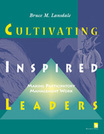Sort by: Author | Title | Publication Year
BOOKS
Critical Security Studies and World PoliticsKen Booth, editor Realist assumptions of security studies increasingly have been challenged by an approach that places the human being, rather than the state, at the center of security concerns. This text is an indispensable statement of the ideas of this critical security project, written by some of its leading exponents.
The book is structured around three concepts—security, community, and More > |  |
Critical Theory and World PoliticsRichard Wyn Jones, editor This book represents the first attempt to bring together the leading critical theorists of world politics to discuss both the promise and the pitfalls of their work. The authors range broadly across the terrain of world politics, engaging with both theory and emancipatory practice. Critiques by two scholars from other IR traditions are also included. The result is a seminal statement of the More > |  |
Cuba and the United States: Will the Cold War in the Caribbean End?Joseph S. Tulchin and Rafael Hernández, editors Covering a wide range of issues involving Cuba and the United States—from an even wider range of perspectives—this book is the result of a Wilson Center conference convened to discuss the future of relations between the two countries. The contributors focus on the political dynamics in each country and consider how those dynamics might be affected by the rapidly shifting international More > | |
Cuba Under Raúl Castro: Assessing the ReformsCarmelo Mesa-Lago and Jorge Pérez-López What led to the dramatic social and economic reforms introduced by Cuba's president Raúl Castro? How effective have those reforms been? And what obstacles does Castro face in overcoming the country's chronic socioeconomic woes? Cuba Under Raúl Castro addresses these questions, offering a comprehensive analysis of the president's efforts during his first six years in More > |  |
Cuba's Socialist Economy Today: Navigating Challenges and ChangePaolo Spadoni What does Cuba's socialist economy look like today, after a half-century of fluctuating strategies? Are the reforms instituted by Raúl Castro improving living conditions and boosting production and efficiency? What challenges does the government face in crafting policies to address the country's most critical problems? Paolo Spadoni offers deeply informed answers to these questions More > |  |
Cuba: The Contours of ChangeSusan Kaufman Purcell and David J. Rothkopf, editors Though few observers dispute that change is coming to Cuba, there is a notable lack of consensus regarding the pace and direction of that change. The authors of this collection offer a range of views on the growing political and economic challenges facing the Castro regime, how those challenges will be met, and Cuba's prospects for a peaceful transition to democracy. The book also includes two More > |  |
Cultivating Inspired Leaders: Making Participatory Management WorkBruce Lansdale Bruce Lansdale draws on the wealth of experience that he gained during his years at the American Farm School to show how managers can progress from their traditional roles as administrators to become inspired leaders with the capability and eagerness to cultivate leadership qualities—as well as a sense of dedication and commitment to their organizations and their associates—in More > |  |
Cultural Expression and Grassroots Development: Cases from Latin America and theCaribbeanCharles David Kleymeyer, editor Arguing that a people's own cultural heritage is the foundation on which equitable and sustainable development can best be built, this book presents an innovative, culture-based approach to grassroots development in Latin America and the Caribbean.
The approach seeks to retain a population's special cultural strengths and contributions while enabling them to achieve necessary changes in More > |  |
Culture, Development, and Public Administration in AfricaOgwo Jombo Umeh and Greg Andranovich Using southern African nations as an example, the authors argue that emerging societies are poor today thanks to the over reliance on non-local models. Practitioners must consider local cultures—-languages, symbols, customs, and rituals—in developing effective administrative practices. They must absorb the experiences of people who know first-hand the dynamics and conditions in these More > |  |
Curtailing Corruption: People Power for Accountability and JusticeShaazka Beyerle How do citizens counter corruption and exact accountability from power holders? What strategic value does people power bring to the anticorruption struggle? Can bottom-up, citizen-based strategies complement and reinforce top-down anticorruption efforts?
Addressing these questions—and demonstrating the critical role of grassroots efforts in the anticorruption/accountability More > |  |



